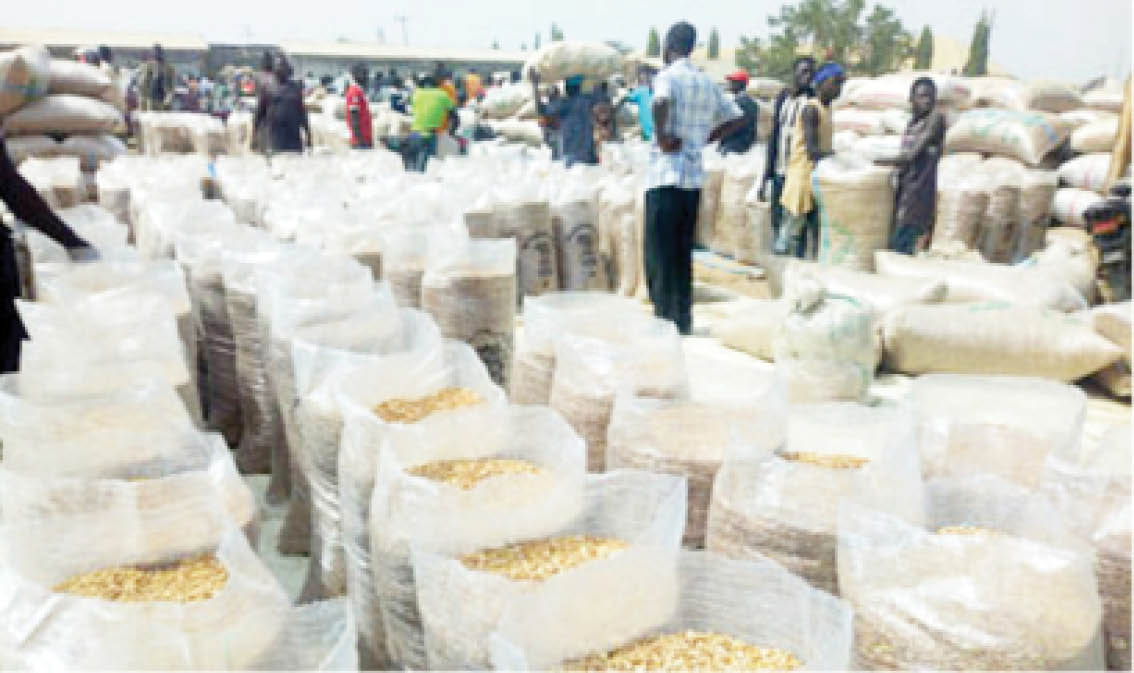A new assessment has found that a staggering 33 million people will face acute food insecurity in Nigeria in 2025, with the number of people facing emergency levels of need projected to almost double.
The food insecurity and malnutrition analysis, Cadre Harmonisé, led by the Government of Nigeria and supported by partners, alerts on the deterioration of food security in Nigeria with 33.1 million people expected to face high levels of acute food insecurity during the coming lean season (June-August).
This represents an alarming rise of 7 million people from the same period last year, driven by economic hardship, coupled with record high inflation, the effects of climate change and persistent violence in the northeastern states of the country.
Between October and December 2024, 25.1 million people are likely to experience acute food insecurity even at the peak of the harvest season. Of this, 3.8 million live in the northeastern states. This number is projected to rise to 5 million.
Nationally, the number of people experiencing emergency levels (Phase 4) of food insecurity is projected to increase from 1 million people in the peak of the 2024 lean season to 1.8 million people at the same period in 2025, representing a worrying 80 per cent rise.
Approximately 5.4 million children and nearly 800,000 pregnant and breastfeeding women are at risk of acute malnutrition or wasting from six of the most affected states of Borno, Adamawa, and Yobe in the North East, and Sokoto, Katsina and Zamfara in the North West. Of these, an alarming 1.8 million children could face Severe Acute Malnutrition (SAM) and require critical nutrition treatment.
Nigeria grapples with economic hardship, coupled with record high inflation which reached 40.9 per cent for food, and 34.2 per cent for all items in June 2024.
This is a record increase in food prices amid record high transportation costs.
According to the National Bureau of Statistics (NBS), the price of beans in October 2024 was 282 per cent above the same period in 2023.
Similarly, the price of local rice rose by 153 per cent compared to October last year.
These economic shocks are as a result of the continuous devaluation of the local currency (naira) against the United States Dollar (USD), external economic factors, and last year’s policy changes on discontinuation of the fuel subsidy.
Other major factors driving food insecurity in the country include the effects of climate change, particularly floods, which directly impact the rising costs of both food and essential non-food commodities and services.
Analyses indicate that due to the extent and persistence of the floods, the potential annual production losses for maize, sorghum and rice combined in the flooded areas, could be about 1.1 million tonnes. This could feed 13 million people for a year.
Persistent violence in the northeastern states of Borno, Adamawa, and Yobe (BAY) hinders food availability and access.
Additionally, armed banditry and kidnapping in the North West and farmer-herder conflict in the North Central states, including Zamfara, Katsina, Sokoto, Kaduna, Benue, Plateau and Niger, exacerbate the prevailing economic struggles.
Highlighting the long-standing issue, David Stevenson, WFP’s Country Representative, said, “The hunger crisis in Nigeria is fueled by the ongoing conflict in the northeast and needs to be urgently addressed. Restoring peace in the North East is critical for us to build pathways to production and achieve the potential as the food basket of the country.”
UNICEF’s Country Representative, Ms Cristian Munduate, emphasised the urgent need for action. She said, “Children are at the center of the food insecurity crisis and face irreversible consequences – both physical and cognitive, and potentially even death. It is our moral imperative to ensure that the right of every child to adequate food and nutrition is upheld.”
The United Nations urges the Nigerian government, donors, and stakeholders to commit resources and implement measures to avert a potential food and nutrition disaster, emphasising the need for immediate multi-sectoral support across the nation.

 Join Daily Trust WhatsApp Community For Quick Access To News and Happenings Around You.
Join Daily Trust WhatsApp Community For Quick Access To News and Happenings Around You.


